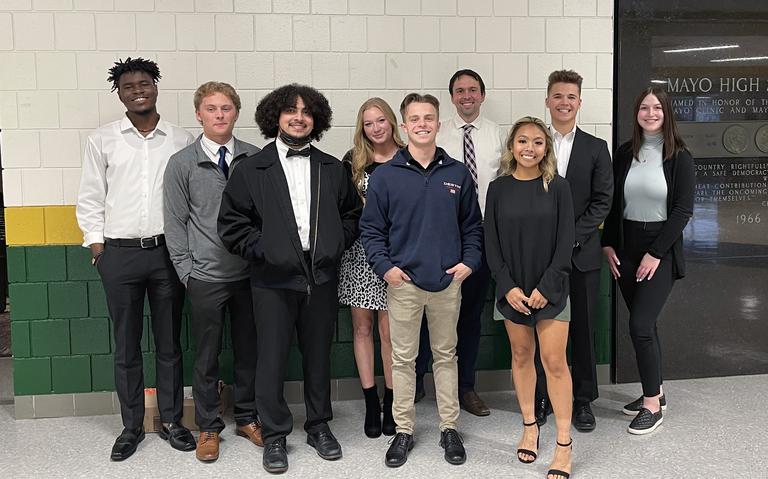Jordan Shearer
Post-Bulletin, Rochester, Minn.
WWR Article Summary (tl;dr) Rochester Public Schools recently completed the second year of its INCubatoredu program. The program is open to students interested in entrepreneurship and business. Rather than being just a traditional class, it thrusts students into the chaos of surviving, or failing, in the real business world.
Rochester
Among the larger, towering buildings in Rochester’s downtown core is a small but vibrantly-painted building. It doesn’t house Mayo Clinic executives, city leaders or any other high-powered players.
Rather, it houses the world’s next business leaders. The ones who haven’t been discovered yet — the ones whose ideas are still being developed and whose skills are still being honed.
Rochester Public Schools recently completed the second year of its INCubatoredu program, which is housed in that vibrant red building. The program is open to students across the district interested in entrepreneurship and business. Rather than being just a traditional class, it thrusts students into the chaos of surviving, or failing, in the real business world.
And for students in this year’s class, that was a welcome challenge.
“Even if you go into another career, it’s always good just to have that business background no matter what you’re doing,” John Marshall junior Nina Munoz said.
Throughout the year-long course, the program immerses students in business lessons and concepts. But that’s only part of the experience since the students are also tasked with creating their own product or service.
Teacher Michael Hutchins, instructs the students to come up with a list of minor inconveniences. Then they are tasked with developing a way to solve those issues.
From that point, it becomes a matter of making their ideas viable. The students are matched up with mentors from the business community to help them with their projects. The students also have to take their ideas out into the public to get feedback on the viability or attractiveness of their products.
“I didn’t feel like a student; I felt like a business owner working with other business people,” Munoz said. “I think that helped a lot. I really got to branch out to the community and learn the actual business side of it.”
Hutchins said one of the benefits of the program is that it gives students a place where they can not only try things, but try things that may not work out.
“We’re really taught that we’re able to fail. And if we fail, how to recover from that,” John Marshall senior Carson Mueller said. “It really teaches us a lot more about life.”
Shortly before the school year ended, the student businesses congregated for a pitch night. Facing a panel of business professionals, the students had to describe the products they were proposing as well as their business plans to make those products a reality.
Munoz was part of a team that created a strap that would help a phone charger stay plugged into the wall. Another group created an app to help people in the music business network more easily. The third group that Mueller was in developed a product to help keep the strings of a hoodie straight.
The judges had the power to award $16,000 to the various businesses. This year, it was split fairly evenly — two of the businesses received $6,000 and the third got $4,000.
Even though it wrapped up its second year, the Incubatoredu program still hasn’t had a fully normal run. In its first year, the students weren’t able to pitch their concepts to the judges because of the onset of the COVID-19 pandemic and distance learning.
Although the students were able to pitch their concepts this year, they spent most of the year collaborating remotely because of the continuation of distance learning.
“Last year was very, very different,” Hutchins said after the pitch night. “This was the first one that we got to see all the way through to the culmination.”
Even though the class is over and they are now graduated, Mueller said he and his student business partners in Hoodini Sweatshirt Solutions plan to take the money they received and carry their hoodie strings gizmo — SpyraCell — through to production and the marketplace. That the partners may be headed in different directions doesn’t seem like an issue in the post-pandemic world.
“We’ve gone this far, why not just keep going?” Mueller said. “I think after the year that we just had, I don’t think we can be torn apart in any way.”
___
Distributed by Tribune Content Agency, LLC.














































































































































































































































































































































































